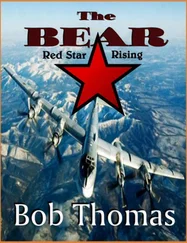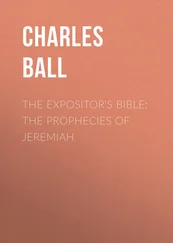The biblical evidence strongly supports taking rosh as a proper noun referring to a geographical location. But that’s only half of the issue. The next question is—which geographical location? Wilhelm Gesenius, the father of modern Hebrew lexicography, believed Rosh in Ezekiel is a proper name referring to Russia. He wrote in 1846 that Rosh is “undoubtedly the Russians, who are mentioned by the Byzantine writers of the tenth century, under the name Ros, dwelling to the north of Taurus [in Turkey].” [17] Gesenius, Gesenius’ Hebrew and Chaldee Lexicon , 752.
Clearly, Gesenius did not base his view on current events or any theological predisposition to favor this view. As author Joel Rosenberg observes,
What is interesting to me about this assessment is that it was written in 1846, long before the Communist revolution or the subsequent rise of the Soviet Union as a nuclear superpower. In this case, Gesenius was not using a political or economic lens to reach his conclusions. He was using only the third lens of Scripture, and the evidence pointed him to Russia more than 160 years ago. [18] Joel C. Rosenberg, Epicenter: Why the Current Rumblings in the Middle East Will Change Your Future , rev. ed. (Carol Stream, IL: Tyndale, 2008), 86.
The compelling evidence from biblical scholarship concerning the grammar and language of Ezekiel 38:2 indicates that rosh be understood as a proper name, the name of a specific geographic area. Rosh refers to Russia.
The Group of People
One of the arguments against equating Rosh with Russia is that no ancient nation named Rosh existed. However, a growing body of evidence points toward a group of people in the sixth century BC identified as “Rash,” “Reshu,” or “Ros,” who inhabited territory that today is in southern Russia. [19] Billington, “The Rosh People (Part Two),” 145–46; Clyde E. Billington Jr., “The Rosh People in History and Prophecy (Part Three),” Michigan Theological Journal 4, no. 1 (Spring 1993): 59, 61; James D. Price, “Rosh: An Ancient Land Known to Ezekiel,” Grace Theological Journal 6, no. 1 (1985): 71–73; Jon Mark Ruthven, The Prophecy That Is Shaping History: New Research on Ezekiel’s Vision of the End (Fairfax, VA: Xulon Press, 2003). Thomas Ice writes, “It is very likely that the name Rosh is actually derived from the name Tiras in Genesis 10:2 in the Table of Nations. Billington notes the Akkadian tendency to drop or to change an initial ‘t’ sound in a name especially if the initial ‘t’ was followed by an ‘r’ sound. If you drop the initial ‘T’ from Tiras you are left with ‘ras.’” Thomas Ice, “Ezekiel 38 and 39: Part IV,” Pre-Trib Research Center, accessed May 25, 2017, http://www.pre-trib.org/data/pdf/Ice-(Part4)Ezekiel38&39.pdf . See also Billington, “The Rosh People (Part Two),” 166–67.
While the word has a variety of forms and spellings, it is clear that the same people are in view.
Egyptian inscriptions indicate that Rosh existed as early as 2600 BC. A place called Reshu, located north of Egypt, is mentioned in an Egyptian inscription from around 1500 BC. [20] Billington, “The Rosh People (Part Two),” 145–46.
Many other ancient documents mention the place-name Rosh in upwards of twenty instances. [21] It is found three times in the Septuagint (LXX), ten times in Sargon’s inscriptions, once in Assurbanipal’s cylinder, once in Sennacherib’s annals, and five times in Ugaritic tablets. See Price, “Rosh: An Ancient Land,” 71–73.
Rosh was apparently a well-known place in Ezekiel’s day. In the sixth century BC, when Ezekiel wrote his prophecy, many of the Rosh people lived in a region north of the Black Sea. After providing extensive evidence of the origin and early history of the Rosh people and then tracing them through the centuries, Clyde Billington concludes,
As early as 438 A.D., Byzantine Christians placed Gog, Magog, Meshech, Tubal and Ros peoples to the north of Greece in the area that today is Russia…. Historical, ethnological, and archaeological evidence all favor the conclusion that the Rosh people of Ezekiel 38–39 were the ancestors of the Rus/Ros people of Europe and Asia…. The Rosh people who are mentioned in Ezekiel 38–39 were well-known to ancient and medieval writers by a variety of names which all derived from the names of Tiras and Rosh…. Those Rosh people who lived to the north of the Black Sea in ancient and medieval times were called the Rus/Ros/Rox/Aorsi from very early times…. From this mixture with Slavs and with the Varangian Rus in the 9 thcentury, the Rosh people of the area north of the Black Sea formed the people known today as the Russians. [22] Billington, “The Rosh People (Part Three),” 48, 59, 61.
All agree that there is no geographical place today named Rosh. Our task is to identify where the Rosh people lived in Ezekiel’s day and then determine what nation occupies that territory today. Arnold Fruchtenbaum writes, “While the names of these geographical areas have changed over the centuries… and may change again, the geography itself remains intact. Regardless of what names they may carry at the time of this invasion, it is these very geographical areas that are involved. Although the leading nation may have once been called the Soviet Union, and more recently the Commonwealth of Independent States, and traditionally Russia, it is this territory—by whatever name it may be called at that time—that will lead this invasion.” [23] Fruchtenbaum, Footsteps of the Messiah , 108–9.
The Geography
The third main line of evidence for identifying Rosh as Russia is based on location. Ezekiel chapters 38 and 39 emphasize repeatedly that at least part of this last-days’ invading force will come “from the distant north” (38:6, 15; 39:2). Biblical directions are usually given in reference to Israel, which on God’s compass is the “center” (or “navel”) of the earth (see Ezekiel 38:12, NASB). This valuable textual clue points to Russia. If you draw a line directly north from Israel on a map, only five nations are in line: Lebanon, Syria, Turkey, Ukraine, and Russia. But the one farthest north is Russia. [24] Daniel 11:40 mentions an end-time figure called the “king of the north” who will contest and challenge the authority of the final Antichrist. Because of the focus on the north in Daniel 11:40 and Ezekiel 38, John MacArthur holds that the king of the north in Daniel 11:40 is a reference to Russia and is a parallel passage to Ezekiel 38. MacArthur, Future of Israel , 78–79. Leon Wood also identifies the king of the north in Daniel 11:40 as Russia. See Leon Wood, A Commentary on Daniel (Eugene, OR: Wipf and Stock, 1998), 308–10. David Jeremiah similarly believes Daniel 11:40 “meshes perfectly” with Ezekiel’s prophecy. David Jeremiah, Is This the End? Signs of God’s Providence in a Disturbing New World (Nashville: W Publishing Group, 2016), 213.
John Walvoord says, “One cannot escape Russia if he goes north of the Holy Land. On the basis of geography alone, it seems quite clear that the only nation which could possibly be referred to as coming from the far north would be the nation Russia.” [25] John F. Walvoord, The Nations in Prophecy (Grand Rapids, MI: Zondervan, 1967), 106.
Paul Enns notes, “These enemies come from the ‘remote parts of the north’ (vv. 6, 15), modern Turkey and southern Russia—the nations surrounding the Black and Caspian Seas.” [26] Paul P. Enns, ed., Shepherd’s Notes: Ezekiel (Nashville: B&H, 1998), 92.
Walter Kaiser is unsure if Rosh in Ezekiel 38 is Russia, but he sees the geographical reference to the far north as unmistakable. “They are depicted by Ezekiel as ‘coming from [their] place in the far north’ (15). The allusion to the ‘far north’ also points to a Russian-led confederation, for Moscow is almost directly north of Jerusalem on a modern map.” [27] Walter C. Kaiser Jr., Preaching and Teaching the Last Things: Old Testament Eschatology for the Life of the Church (Grand Rapids, MI: Baker Academic, 2011), 92. Kaiser also believes Russia will lead the alliance of nations, referring to it as the “Russian-Iranian horde” and “Russian-Iranian coalition (93, 95).
Читать дальше











